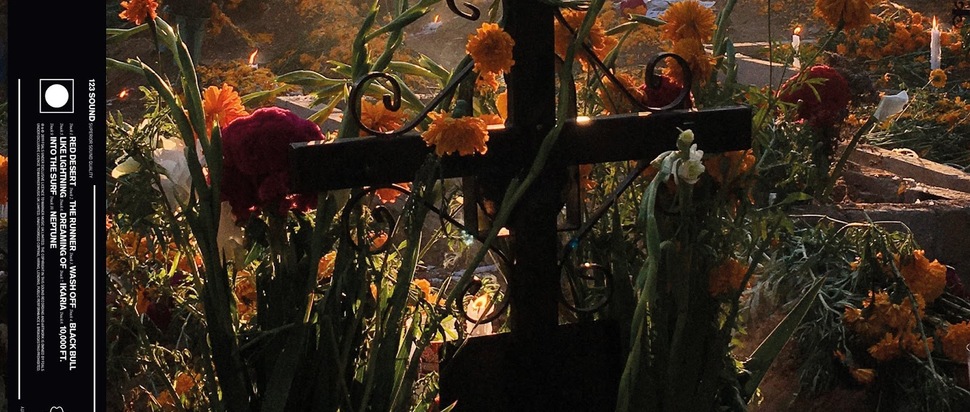Foals – Everything Not Saved Will Be Lost – Part 2
Six months on from the first instalment, Oxford's finest hold up a cracked black mirror to Part 1 – and make a stirring argument for the double album in the process
It was inevitable that there'd be a degree of cynicism over Foals’ claim that the quality of the tracks they’d written for their fifth record justified two ten-track releases. This would be especially true if you were of the unpopular opinion that the band’s finest hour remains their anxious, menacing debut Antidotes, and that the two albums that followed – 2010’s Total Life Forever and 2013’s Holy Fire – both failed to vindicate 50-minute running times. If both parts are taken together, Everything Not Saved Will Be Lost clocks in at 80.
The two-records-in-one cycle model is a fashionable one at the moment and, in an era characterised by an ever-widening attention deficit, it’s not unreasonable to wonder whether out-and-out double albums are now officially a thing of the past. If that’s the case, it’s a genuine shame, because as bloated and overblown as the worst ones would always prove, the best ones were emblematic of panoramic creative thinking, of a rare ability on the artist’s part to make a nuanced distinction between two sides of the same set of overarching ideas.
Only a handful of such releases have really pulled that off over the past two decades or so of alternative rock; Mellon Collie and the Infinite Sadness, for sure. The Fragile, too. Arcade Fire’s Reflektor would be a strong recent shout. And so, as it happens, would Everything Not Saved Will Be Lost. In interviews around the release of Part 1, Yannis Philippakis contended that the divide between that and Part 2 could be characterised in straightforward terms; the first instalment was largely indebted to funk and new wave – lighter, poppier and breezier. Part 2, he promised, would represent the throw down after the slow down; heavier, messier, altogether blacker.
If that had been the case, all it really would have represented anyway was an extrapolation of the modus operandi that the group had settled into from Total Life Forever onwards; there were always moments that were playfully danceable (Miami, My Number, Birch Tree) to offset the indulgence of their stormier leanings (After Glow, Providence, A Knife in the Ocean). Instead, though, there's something altogether more complex, more intelligent going on than just that age-old balancing act between light and shade. The track listings would be markedly different affairs if you’d split the 20 songs on that basis. Instead, there’s a thoughtful equilibrium to the divide, one that sees Part 2 hold up a grimy mirror to its predecessor.
The band’s predilection for towering riffs dates back to Holy Fire, but it’s on this pair of records that they’ve really come into their own in that regard; the Tom Morello-indebted battering ram of Inhaler sounds comparatively crude set against the much more dextrous and dynamic guitar work that defines a slew of these tracks. On Part 1, they tended to be zippy, taut lines, particularly on White Onions and On the Luna; this time out, they’re sludgier, weightier, far more confrontational. There’s suddenly more bite to the measured, melodic cuts, The Runner being a case in point, and when there’s those trademark, uncontrolled bursts of energy, they’re borderline feral, as evidenced by the spiky Like Lightning or the scorched earth of Black Bull.
Throughout, you can feel the two parts interlocking: in 10,000 Ft. taking the low-level anxiety of Syrups and ratcheting up the atmospherics, in Dreaming Of casting a long shadow over In Degrees’ dancefloor, and in the sinister, spacey ten-minute closer Neptune, which – like its same number on Part 1, I’m Done with the World (& It’s Done with Me) – stares unflinchingly into the void. There’s direct intertextuality, too: openers Moonlight and Red Desert are cut from the same longer piece of instrumental cloth, while the synth line hinted at on the first half’s Surf Pt. 1 surfaces again now on the brooding Into the Surf.
Less obvious are the crossroads at which Philippakis’ often meandering lyricism meet, but everything else about Everything Not Saved Will Be Lost has been crafted with such close control and pinpoint attention to detail that those concerns can be overlooked. The most crucial overlap here is between Foals’ dual ambitions – creative and commercial. They’ve been one of the biggest bands in Britain for a while now – and finally, they truly sound like it.
Listen to: The Runner, Neptune, 10,000 Ft.
